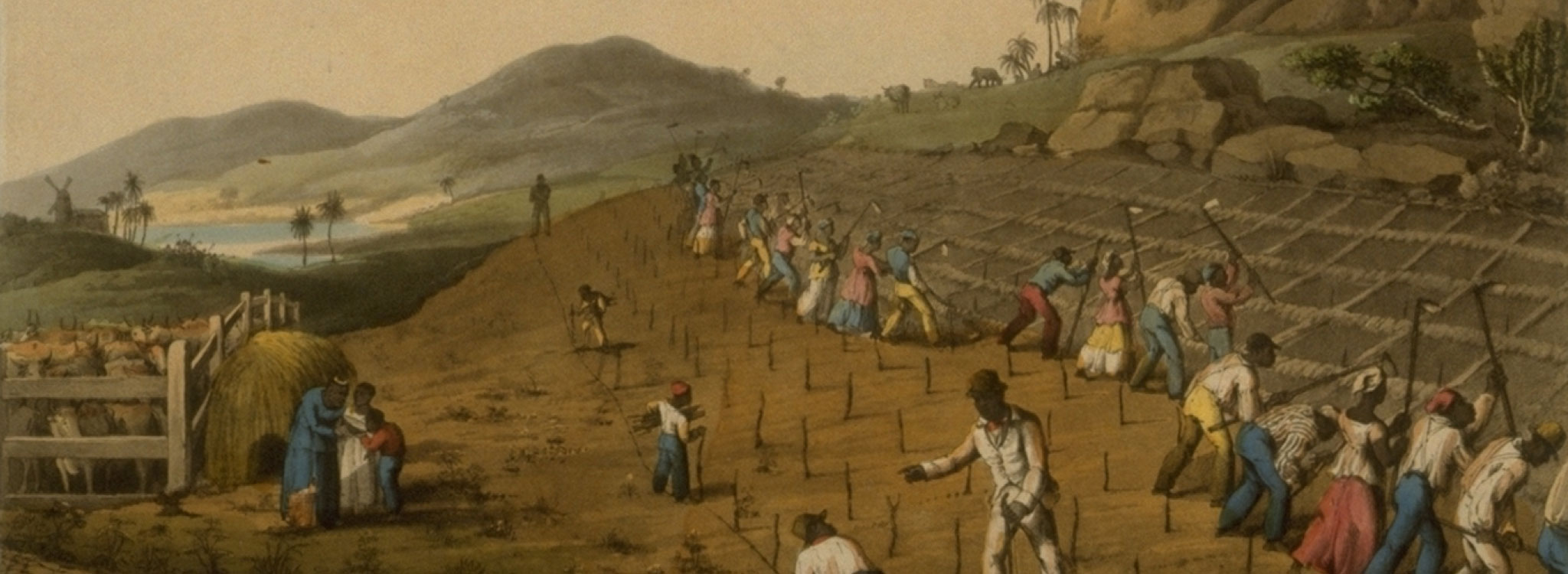“Gullah” Jack Pritchard, conjurer and rebel, was born in East Africa in the final years of the eighteenth century. Pritchard was captured, taken to Zanzibar, and sold to Zephaniah Kingsley in 1805. Although little is known about his early life, at the time of his enslavement he was already an established conjurer. Jack was taken to Kingsley’s plantation in East Florida but shortly after was purchased by Paul Pritchard, a Charleston shipbuilder, to work on the docks as a joiner and caulker in April 1806.
As an urban slave with considerable skill as both a laborer and conjurer, Jack was able to live off Pritchard’s property and hired out his time around the city. Jack was well-respected as an African priest and an important member of the African church in the Hampstead neighborhood of Charleston. Jack held a great degree of influence over the African American community due to his connections within the church, his perceived spiritual authority as a healer, and his memorable physical appearance (he was remembered as having large whiskers).
Jack befriended Denmark Vesey around 1817. Vesey was a wealthy free slave whose influence in the community rivaled Jack’s. Together, these two men held considerable sway over the African American community in Charleston and in 1821 Vesey approached Jack about organizing a slave revolt in Charleston. Jack aided Vesey in the plans for the rebellion by acting as a recruiter at community meetings and utilizing his spiritual powers to perform elaborate initiation rituals to ensure loyalty to the cause. Later, a number of those involved in the revolt would claim that Jack controlled them by magic and that he was to blame for their wrongdoings during what was to become known as the Denmark Vesey Rebellion, the largest slave conspiracy in North American history.
In addition to recruiting participants, Jack also aided Vesey in planning to poison the Charleston water supply and they also planned to lead a contingent of Vesey’s followers to seize and distribute weapons throughout Charleston on the day of the rebellion. Things did not go as planned, however, when informers betrayed Vesey’s plans. On June 17, 1822, authorities began to gather conspirators in the plan for trial; Vesey and Pritchard evaded arrest even though their trial began on June 19. Vesey was captured on June 22 and although Pritchard and others schemed to free him, they were unsuccessful. Pritchard was captured on July 5, the day before another conspiracy was set to begin. On July 9, white authorities sentenced him to death for his role in the conspiracy.
Read the full, original biography by Nathaniel Millett in the African American National Biography
Online Resources
"Denmark Vesey," This Far by Faith, https://www.pbs.org/thisfarbyfaith/people/denmark_vesey.html
“Sentence of Gullah Jack,” Africans in America, https://www.pbs.org/wgbh/aia/part3/3h497t.html
Bibliography
Egerton, Douglas. He Shall Go Free: The Lives of Denmark Vesey. New York: Rowman and Littlefield, 2004.
Millett, Nathaniel. "Pritchard, “Gullah” Jack." African American National Biography, edited by Ed. Henry Louis Gates Jr.. , edited by and Evelyn Brooks Higginbotham. . Oxford African American Studies Center, http://www.oxfordaasc.com/article/opr/t0001/e4741 (accessed Thu Sep 05 11:11:29 EDT 2019).
Robertson, David. Denmark Vesey. New York: Vintage Books, 2000.
Silverman, Susan, and Lois Walker. A Documented History of Gullah Jack Pritchard and the Denmark Vesey Slave Insurrection of 1822. Lewiston, NY: Edwin Mellen Press, 2001.
Author
Nathaniel Millett
Adapted by
Elizabeth Timbs and David Glovsky
Contributing Institutions
Hutchins Center for African & African American Research, Harvard University, Cambridge, MA.
Oxford University Press (USA) African American Studies Center.






